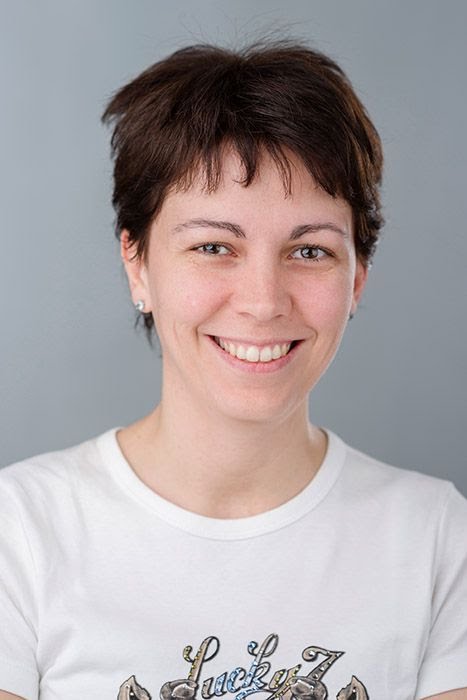Studying at the University of Verona
Here you can find information on the organisational aspects of the Programme, lecture timetables, learning activities and useful contact details for your time at the University, from enrolment to graduation.
Academic calendar
The academic calendar shows the deadlines and scheduled events that are relevant to students, teaching and technical-administrative staff of the University. Public holidays and University closures are also indicated. The academic year normally begins on 1 October each year and ends on 30 September of the following year.
Course calendar
The Academic Calendar sets out the degree programme lecture and exam timetables, as well as the relevant university closure dates..
| Period | From | To |
|---|---|---|
| First semester bachelor degree | Sep 16, 2019 | Jan 10, 2020 |
| Second semester bachelor degree | Feb 17, 2020 | Jun 5, 2020 |
| Session | From | To |
|---|---|---|
| First semester intermediate tests | Nov 4, 2019 | Nov 8, 2019 |
| Winter exam session | Jan 13, 2020 | Feb 14, 2020 |
| Second semester intermediate tests | Apr 15, 2020 | Apr 17, 2020 |
| Summer session exam | Jun 8, 2020 | Jul 10, 2020 |
| Autumn Session exams | Aug 24, 2020 | Sep 11, 2020 |
| Session | From | To |
|---|---|---|
| Autumn Session | Dec 2, 2019 | Dec 4, 2019 |
| Winter Session | Apr 7, 2020 | Apr 9, 2020 |
| Summer session | Sep 7, 2020 | Sep 9, 2020 |
Exam calendar
Exam dates and rounds are managed by the relevant Economics Teaching and Student Services Unit.
To view all the exam sessions available, please use the Exam dashboard on ESSE3.
If you forgot your login details or have problems logging in, please contact the relevant IT HelpDesk, or check the login details recovery web page.
Should you have any doubts or questions, please check the Enrollment FAQs
Academic staff
Borello Giuliana
 giuliana.borello@univr.it
giuliana.borello@univr.it
 045 802 8493
045 802 8493
 stefano.gatti@univr.it
stefano.gatti@univr.it

Manzoni Elena
 elena.manzoni@univr.it
elena.manzoni@univr.it
 8783
8783
 martina.menon@univr.it
martina.menon@univr.it
 neliana.orlandi@univr.it
neliana.orlandi@univr.it
Study Plan
The Study Plan includes all modules, teaching and learning activities that each student will need to undertake during their time at the University.
Please select your Study Plan based on your enrollment year.
1° Year
| Modules | Credits | TAF | SSD |
|---|
2° Year activated in the A.Y. 2020/2021
| Modules | Credits | TAF | SSD |
|---|
3° Year activated in the A.Y. 2021/2022
| Modules | Credits | TAF | SSD |
|---|
| Modules | Credits | TAF | SSD |
|---|
| Modules | Credits | TAF | SSD |
|---|
| Modules | Credits | TAF | SSD |
|---|
| Modules | Credits | TAF | SSD |
|---|
Legend | Type of training activity (TTA)
TAF (Type of Educational Activity) All courses and activities are classified into different types of educational activities, indicated by a letter.
Industrial Economics (2021/2022)
Teaching code
4S00509
Teacher
Coordinator
Credits
9
Language
Italian
Scientific Disciplinary Sector (SSD)
SECS-P/01 - ECONOMICS
Period
primo semestre (lauree) dal Sep 20, 2021 al Jan 14, 2022.
Learning outcomes
The main purpose of the module in Industrial Economics is the economic analysis of firms behaviour and decisions, and in particular their interaction with competitors, suppliers, customers, consumers, the regulator, as it might be inspired by case studies. The main objective is to train students for a critical reading of these economic phenomena and of the relevant economic sectoral policies. In particular, the module will analyze in details topics such as price discrimination, product differentiation and innovation, strategic interaction with suppliers and distributors, the use of online platforms, focusing on how these may affect the competitive environment and firms’ business models of choice. At the end of the module, students will be able to understand and critically analyze industrial plans derived from business models developed according to different competitive environments. The module may also rely on group work activities, so to develop students’ soft skills. All classes and tutorials will be in Italian.
Program
The module starts with a revision of basic microeconomic concepts and oligopoly models. We then move on more specific topics such as firm behaviour in competitive environments such as: - foundations of microeconomics; market structure and market power; technology and cost - monopoly power: theory and evidence; price discrimination, linear and non-linear pricing; variety and quality in a monopoly - oligopoly and strategic interaction: static games and Cournot competition; price competition a' la Bertrand; sequential games, first and second mover. - anti-competitive strategies: limit pricing, entry deterrence, predatory behaviour, price fixing and repeated games, collusion (how to detect it and fight it) - contracts between firms: horizontal integration, vertical integration and price restrictions - non-price competition: advertising, market power, information and competition, R&D and patents - network ---module structure--- - Lectures on theoretical models, empirical evidence and case studies - Tutorials, to apply the theoretical concepts During the teaching semester there may be a tutoring service held by graduate students, to solve problems and support learning of exercises similar to the one on which you’ll be examined. During the academic year there will be the lecturer’s office hours. The textbook, slides and problem sets are coherent with the syllabus. Further teaching material will be available on the Moodle page of the module.
Bibliography
Examination Methods
Syllabus, teaching material and exam format are the same for attending and non-attending students. Coherently with what taught, the Industrial Economics assessment is a WRITTEN EXAM in which the student is asked to:
a) solve problems analytitcally
b) comment critically current affair cases linked with the taught topics
c) answer theory questions
All of these concur to for the final mark. More details will follow during teaching and in the online course material.
--- Half-Term Test
The half-term test is not compulsory.
The first partial test will cover topics taught in the first part of the module, the second partial test will cover the remaining topics.
Each partial test is considered “passed” if and only if the grade is at least 15/30. Who passes the first test can sit the second test in the first date of the Winter exam session (primo appello). Who does not pass either of the two partial tests will have to sit the full exam. The final grade will be the simple average of the two tests grades (as long as both grades are at least 15).
Alternatively, students may take the full exam, which will be based on the whole syllabus.
Type D and Type F activities
Nei piani didattici di ciascun Corso di studio è previsto l’obbligo di conseguire un certo numero di crediti formativi mediante attività a scelta (chiamate anche "di tipologia D e F").
Oltre che in insegnamenti previsti nei piani didattici di altri corsi di studio e in certificazioni linguistiche o informatiche secondo quanto specificato nei regolamenti di ciascun corso, tali attività possono consistere anche in iniziative extracurriculari di contenuto vario, quali ad esempio la partecipazione a un seminario o a un ciclo di seminari, la frequenza di laboratori didattici, lo svolgimento di project work, stage aggiuntivo, eccetera.
Come per ogni altra attività a scelta, è necessario che anche queste non costituiscano un duplicato di conoscenze e competenze già acquisite dallo studente.
Quelle elencate in questa pagina sono le iniziative extracurriculari che sono state approvate dal Consiglio della Scuola di Economia e Management e quindi consentono a chi vi partecipa l'acquisizione dei CFU specificati, alle condizioni riportate nelle pagine di dettaglio di ciascuna iniziativa.
Si ricorda in proposito che:
- tutte queste iniziative richiedono, per l'acquisizione dei relativi CFU, il superamento di una prova di verifica delle competenze acquisite, secondo le indicazioni contenute nella sezione "Modalità d'esame" della singola attività;
- lo studente è tenuto a inserire nel proprio piano degli studi l'attività prescelta e a iscriversi all'appello appositamente creato per la verbalizzazione, la cui data viene stabilita dal docente di riferimento e pubblicata nella sezione "Modalità d'esame" della singola attività.
ATTENZIONE: Per essere ammessi a sostenere una qualsiasi attività didattica, inlcuse quelle a scelta, è necessario essere iscritti all'anno di corso in cui essa viene offerta. Si raccomanda, pertanto, ai laureandi delle sessioni di dicembre e aprile di NON svolgere attività extracurriculari del nuovo anno accademico, cui loro non risultano iscritti, essendo tali sessioni di laurea con validità riferita all'anno accademico precedente. Quindi, per attività svolte in un anno accademico cui non si è iscritti, non si potrà dar luogo a riconoscimento di CFU.
| years | Modules | TAF | Teacher |
|---|---|---|---|
| 1° 2° 3° | Enactus Verona 2020 | D |
Paola Signori
(Coordinator)
|
| 1° 2° 3° | Parlare in pubblico e economic writing | D |
Martina Menon
(Coordinator)
|
| 1° 2° 3° | Samsung Innovation Camp | D |
Marco Minozzo
(Coordinator)
|
| 1° 2° 3° | Simulation and Implementation of Economic Policies | D |
Federico Perali
(Coordinator)
|
| years | Modules | TAF | Teacher |
|---|---|---|---|
| 1° 2° 3° | Simulation and Implementation of Economic Policies | D |
Federico Perali
(Coordinator)
|
| years | Modules | TAF | Teacher |
|---|---|---|---|
| 1° 2° 3° | Parlare in pubblico e economic writing | D |
Martina Menon
(Coordinator)
|
Career prospects
Module/Programme news
News for students
There you will find information, resources and services useful during your time at the University (Student’s exam record, your study plan on ESSE3, Distance Learning courses, university email account, office forms, administrative procedures, etc.). You can log into MyUnivr with your GIA login details: only in this way will you be able to receive notification of all the notices from your teachers and your secretariat via email and also via the Univr app.
Graduation
List of thesis proposals
| theses proposals | Research area |
|---|---|
| Proposte di tesi triennali | Various topics |




























